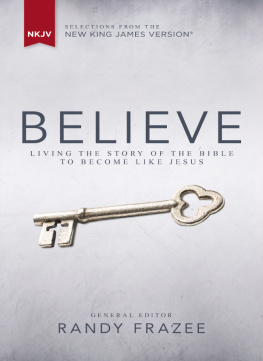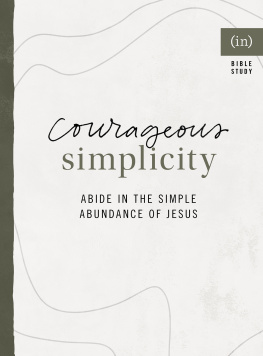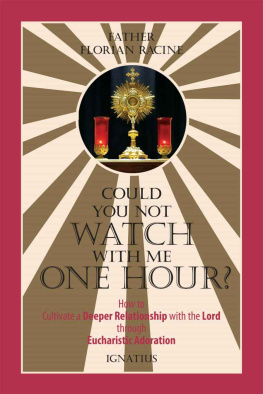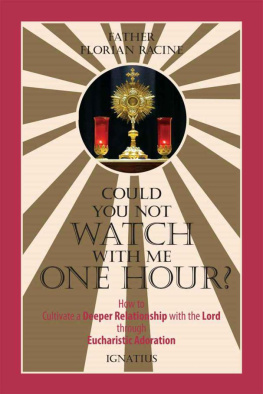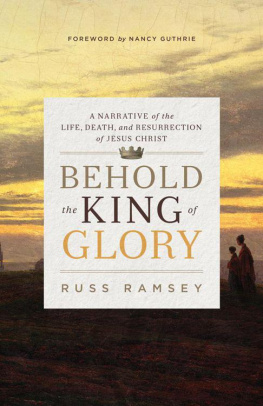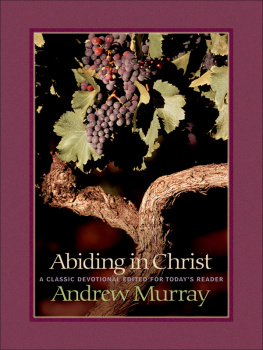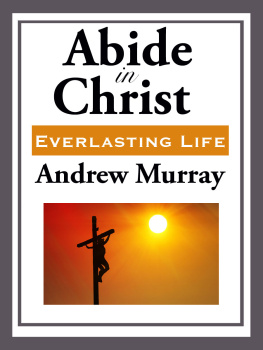Copyright 2013 J. Stephen Yuille. All rights reserved. Except for brief quotations in critical publications or reviews, no part of this book may be reproduced in any manner without prior written permission from the publisher. Write: Permissions, Wipf and Stock Publishers, W. th Ave., Suite , Eugene, OR 97401 .
W. th Ave., Suite
Yuille, J. Stephen.
Looking unto Jesus : the Christ-centered piety of seventeenth-century Baptists / J. Stephen Yuille.
xxiv + pp. ; cm. Includes bibliographical references.
Spiritual lifeHistory of doctrinesth century. PuritansHistoryth century. BaptistsHistoryth century. I.Title .
Manufactured in the U.S.A.
Foreword
Thomas Crosby set his hand to write a History of the English Baptists in 1738 . An early pastor of his church, Benjamin Stinton, an ingenious collector of Baptist material, had submitted what he gathered to Crosby. Friends convinced Crosby to give the material to Daniel Neal that he might include the Baptists in his The History of the Puritans . On that matter Crosby commented, under which general name, I did apprehend the English Baptists might very well be included. Neal, however, in Crosbys opinion, dealt slightly and condescendingly to the Baptists and did not do either them or the material he possessed justice. Though both the strengths and weaknesses of Crosbys work are remarkable, none can doubt that he saw the Baptists as an integral part of that great movement of Puritanism, a more purely, primitive expression of it than those that adhered to that pillar of popery, the baptism of infants.
The great strength of Puritanism, however, lay precisely in its implications for a disciplined church willing to suffer for truth and righteousness. Its weakness lay in its embracing of the chimera of a purified parish church integrally connected to the state church. The Great Ejection of 1662 renewed the Puritan opportunity to suffer and focus more precisely on issues of doctrine, spiritual experience, and assurance. Within this context the Baptists showed the points at which they most resembled the Puritans. That is one thing this book demonstrates with utter clarity.
Before the Great Ejection, fifty years earlier in fact, Thomas Helwys returned to England from a self-imposed exile in Amsterdam in order to provide a witness for the truth and against soul-destructive error to his natural country men, many of whom were their loving kindred in the flesh, and others their most worthy and dear friends to whom we owe the best fruits of our lives and the entire affection of our hearts.
Helwys most useful and justly celebrated writing, The Mistery of Iniquity , denounced the state church system and issued a clear and unalloyed call for liberty of conscience. He included an uncompromised criticism of the so much applauded profession of Puritanism for clinging to the hope of a purified Anglicanism and a consequent inclusion in the establishment. Submission of conscience to Parliament was a spiritual atrocity in Helwyss view and of the essence of an anti-Christian posture. He challenged them with a keen observation about their agitation of Parliament for further reform of the state church.
By this you testify against yourselves that you are unreformed, and that there is a way of reformation, of which you would be, if you might have leave or license to enter into it. Seeing you cannot obtain it, you justify that it is lawful to walk in an unreformed profession upon this ground because you may not have leave by act of Parliament to reform. What more false profession can be found on earth than this of yours, who profess that you know a way of much truth in which you would walk, but you do not, because you cannot by superior power be permitted.
Helwyss commitment to liberty of conscience put him miles ahead of any other English thinker of the day. He contended that none should be punished either with death or bonds for transgressing against the spiritual ordinances of the New Testament, and that such offences should be punished only with the spiritual sword and censures and then only in local congregations. In addition, Helwys wrote plainly and forcefully to the king, that, like Helwys himself, he was but dust and ashes. He granted to him all legitimate power commanded by Scripture but did not allow any power over conscience. Helwys pled, politely but forcefully, that the king might remove the power of the earthly sword from the prelates of the English church and that he might not seek any power over the consciences of his subjects. Helwys put even the political fears of the day in a new perspective with a transcendent vision for liberty. Its scope must have been baffling to his contemporaries.
We still pray our lord the king that we may be free from suspicion for having any thoughts of provoking evil against those of the Romish religion in regard of their profession, if they are true and faithful subjects to the king. For we do freely profess that our lord the king has no more power over their consciences than over ours, and that is none at all. For our lord the king is but an earthly king, and he has not authority as a king but in earthly causes. If the kings people are obedient and true subjects, obeying all human laws made by the king, our Lord the king can require no more. For mens religion to God is between God and themselves. The king will not answer for it. Neither may the king be judge between God and man. Let them be heretics, Turks, Jews, or whatsoever, it does not appertain to the earthly power to punish them in the least measure.
Another Puritan whose consistency led him to a Baptist position was the man of irrepressible conscience, Roger Williams. Flourishing in his views thirty years later than Helwys, he pointed out, as did Helwys, the inconsistency of a Puritans seeking the privilege of parish ministry. Only recently had Puritanism led to the insight that Gods people are a Company or Church of living stones, which made necessary separation from any concept of a parish church, that depended on a national church, that contained the rubbish of Antichristian confusions and desolations.
Questioning the attempts of Parliament in 1644 to establish Presbyterianism, Roger Williams employed a historical argument as a demonstration of the utter futility of seeking to establish true religion by governmental power. Who knows not in how few years the Common weale of England hath set up and pulld down: The Fathers made the children Hereticks, and the Children the Fathers. How doth the Parliament in Henry the VIII his days condemn the absolute Popery in Henry the VII? How is in Edwards the VI his time the Parlament [sic] of Henry the VIII condemned for their halfe popery halfe Protestantism? How soon dothe Queen Maries Parlament condemn Edward for his absolute Protestantisme? And Elizabeths Parlament as soon condemn Queen Maries for their absolute Popery? Williams objected to the Parliaments efforts to seek a mold and pattern of church government from Holland or Scotland. They were on a path of oppression of many thousand precious souls, for whom [Jesus] hath paid so dear a ransome and under the pretense of honoring him, they oppose the Truth and Purity of his last will and Testament. He knew that the command of a king or the act of a parliament could be changed in a day, and certainly in a generation, so that neither truth nor peace were honored in the religious settlements imposed by rulers. And, Oh! he exclaimed as he considered the consequences of the effort to establish by law a particular denomination, Since the common-weale cannot without a spirituall rape force the consciences of all to one Worship, oh that it may never commit that rape, in forcing the consciences of all men to one Worship, which a stronger arme and Sword may soon (as formerly) arise to alter.


